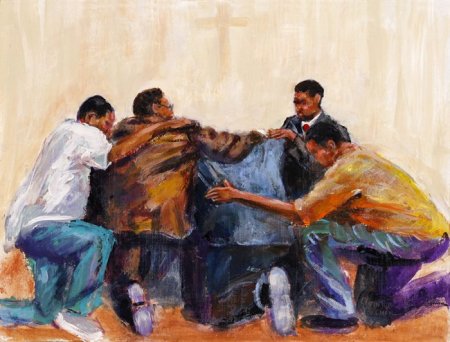By Dan Crain
ATLANTA – My life has been richly blessed by sitting and learning from the “other.”
Who is an “other”? I define it as a person from a different background or culture or race. A person who has a different way of seeing the world, sometimes with priorities that we don’t share.
In some contexts I am the “other,” and I hope and pray that I am a blessing to people with backgrounds different from my own.
I’ve been blessed to be surrounded by “other” people my entire life. A black pastor in Grand Rapids was very influential in my life. He spoke at our large white mega-church and took the time to share breakfast with me. An African-American professor and mentor graciously met with me monthly during seminary to discuss questions about race and ministry in low-income neighborhoods. Authors such as Soon-Chan-Rah, an Asian-American, challenged me profoundly. So, did Janice, a white lady who lives in the increasingly diverse Holden Heights neighborhood of Orlando.
So many good people in Atlanta have taught me so much and blessed me so richly. In particular, there is Victor, who has become a good friend and partner in our ministry. Victor is black, and his experiences about race and racism in our culture have riveted me in many wonderful and rich conversations. He has pushed and guided me, and sometimes made me uncomfortable as a white male.
Victor’s rich life experiences are so different than mine. He grew up in low-income neighborhoods in Cleveland. I grew up on a farm in Bumpville, Pennsylvania. Although we have such different contexts and upbringings, we share a relationship of mutual trust and respect.
Why? Because we are committed to sit with each other. This typically occurs over lunch. In sitting together, we face each other and share not only our differences but also our commonalities.
This is why I think it’s important to pay attention with whom we sit. If we spend time with only people just look like us, we reinforce our particular worldview, and there is no opportunity for reconciliation.
When we sit together, we talk and we listen to each other.
America is divided racially and culturally, and sometimes I fear the divide is growing even wider. What gives me hope is engaging in ongoing conversations where the “others” sit together.
When we make our assumptions about another culture or race in a vacuum, it’s dangerous. It is particularly dangerous to let “news” on TV define a whole culture or race.
This is why it is good to sit with each other. It allows us to begin a conversation with people. This is the starting point for reconciliation, for understanding and for friendship.
Dan Crain is a liaison/trainer for Polis Institute. He and his wife Adrienne and their family live in South Atlanta. He can be reached at dan@polisinstitute.org.
Consider signing up for Dignity Serves, a six-week course that helps you rethink the way we serve others in our community. It teaches you to see problems differently and respond in a way that empowers those you serve rather than just meeting their immediate needs.




